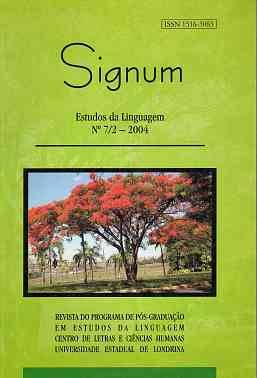<b>Linguistic analysis from the perspective of History: the other in the Renaissance chronicle writer's words</b>
DOI:
https://doi.org/10.5433/2237-4876.2004v7n2p43Keywords:
Enunciation, History, Discourse analysis, 16th century chronicles.Abstract
To evaluate the relationship between linguistic and historical studies, we consider, in this article, the idea that discourse composition constitutes a practice; therefore, it involves an actor named "discourse subject". He acquires his individual identity by means of the choices he makes at the moment he constructs his speech. We try to make visible, among the enunciative structures of Gabriel Soares de Sousa's "Tratado do Brasil", evidences of predominant European ideological values in the 16th century. The approximation between Linguistic and History studies can open good possibilities for both areas of humanistic knowledge.
Downloads
Downloads
Published
How to Cite
Issue
Section
License
Copyright (c) 2025 Luiz Carlos Fernandes

This work is licensed under a Creative Commons Attribution-NonCommercial-NoDerivatives 4.0 International License.
This journal reserves the right to make, in the originals, normative, orthographic and grammatical modifications in order to maintain the standard language and the credibility of the publication. It will respect, however, the authors' style of writing. Modifications, corrections and suggestions of conceptual order will be forwarded to the authors, if necessary. In these cases, the papers, once appropriate, should be submitted to a new appreciation. The final examinations will not be forwarded to the authors. Works published become property of Signum, being its total or partial reprint subject to an explicit authorization of the journal. In all subsequent quotes the original source of publication should be mentioned, in case, in Photographic Discourse. Opinions emitted by the authors are their exclusive responsibility.
















